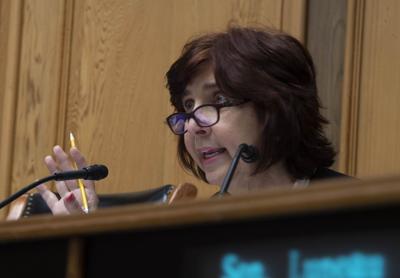Louisiana has established a centralized system to track rape kits from when they are administered at a hospital to when they are tested at a lab, an effort to address a longstanding backlog that has upset victim advocates.
On Wednesday, Gov. John Bel Edwards announced that he had signed into law Senate Bill 169, sponsored by Sen. Beth Mizell, R-Franklinton.
The law requires Louisiana State Police--whose crime lab receives most of the rape kits in Louisiana--to create a tracking system to be used by victims, prosecutors, police and medical personnel.
The State Police crime lab has been the subject of longstanding complaints about backlogs in rape kits. Melissa Matey, a Louisiana State Police spokesperson, said the lab currently has a backlog of about 592 rape kits, 409 of which are from the New Orleans Police Department. She attributed the backlog to turnover in personnel, including 24 employees dedicated to the DNA unit who left the department from 2019 to 2022, among other things.
State police also recently entered into a contract with New Orleans to outsource their casework, including rape kits, to a private lab in the coming months, Matey said.
“By outsourcing the 409 NOPD (kits) it will allow the LSP Crime Laboratory to focus on the other 183 kits that would be left over in the DNA (rape kit) backlog,” Matey said. “During this time, the LSP Crime Laboratory has been working with the new staff of the NOPD Crime Laboratory to assist them in any way possible to get their DNA Unit operational.”
The new law comes after years of attempts by the Legislature to fix the backlog. Mizell said during the session that Louisiana is an outlier by not having a tracking system. Victims and advocates have complained that lengthy testing delays dissuade victims from speaking out and allow rapists more time to reoffend.
The bill also seeks to ensure rape victims are eligible for a full reimbursement of their medical expenses, after a state board had capped reimbursement at $1,000 for rape victims, compared to $15,000 for other crime victims.
Lawmakers earmarked $100,000 to State Police to reduce the rape kit backlog in a supplemental budget bill, along with $4.2 million more to the crime lab for general use.

